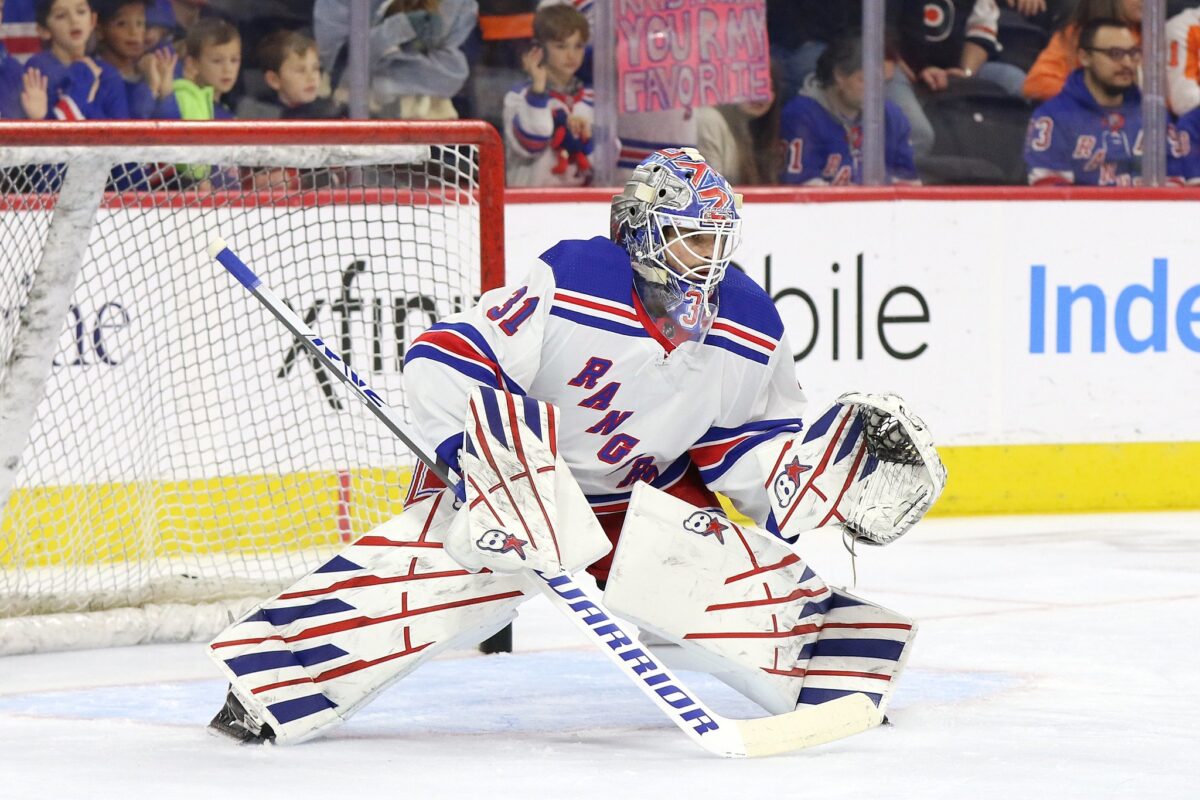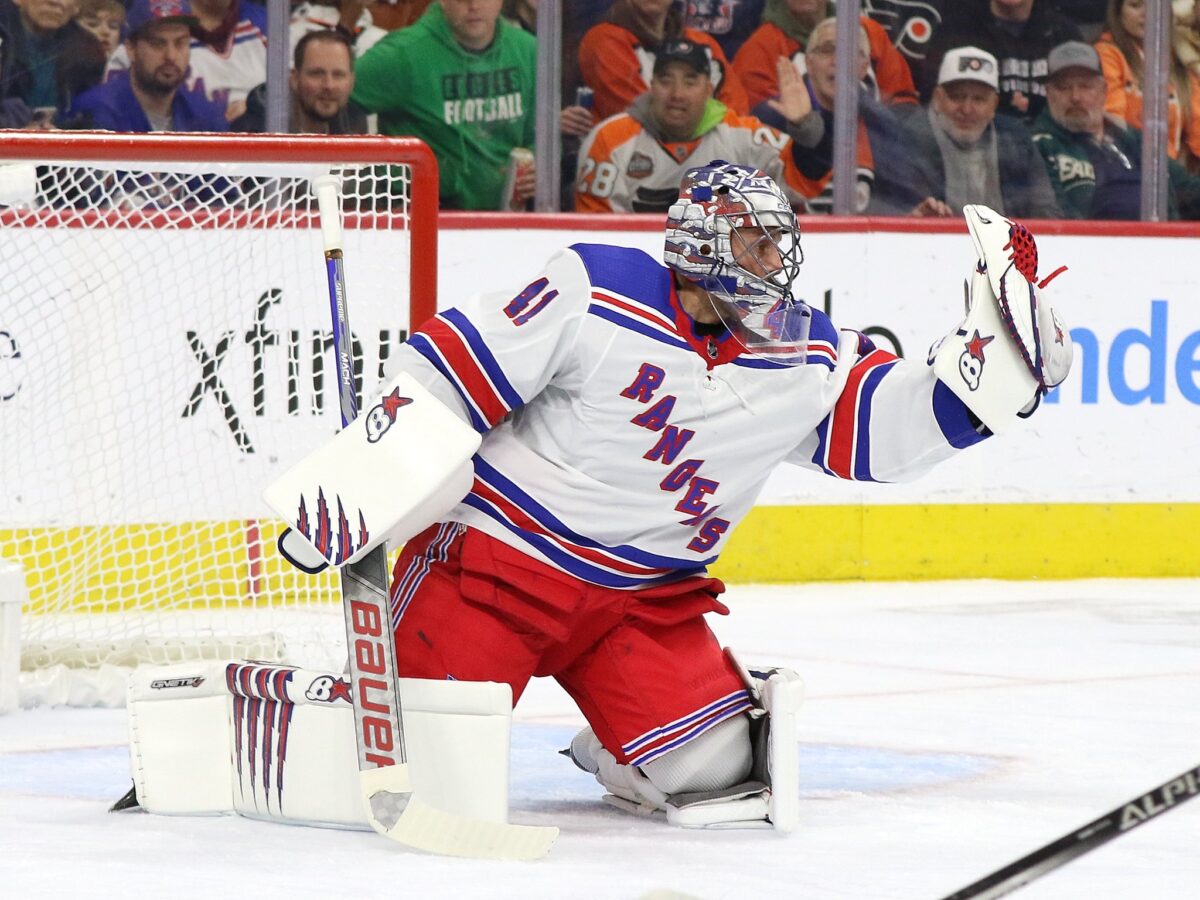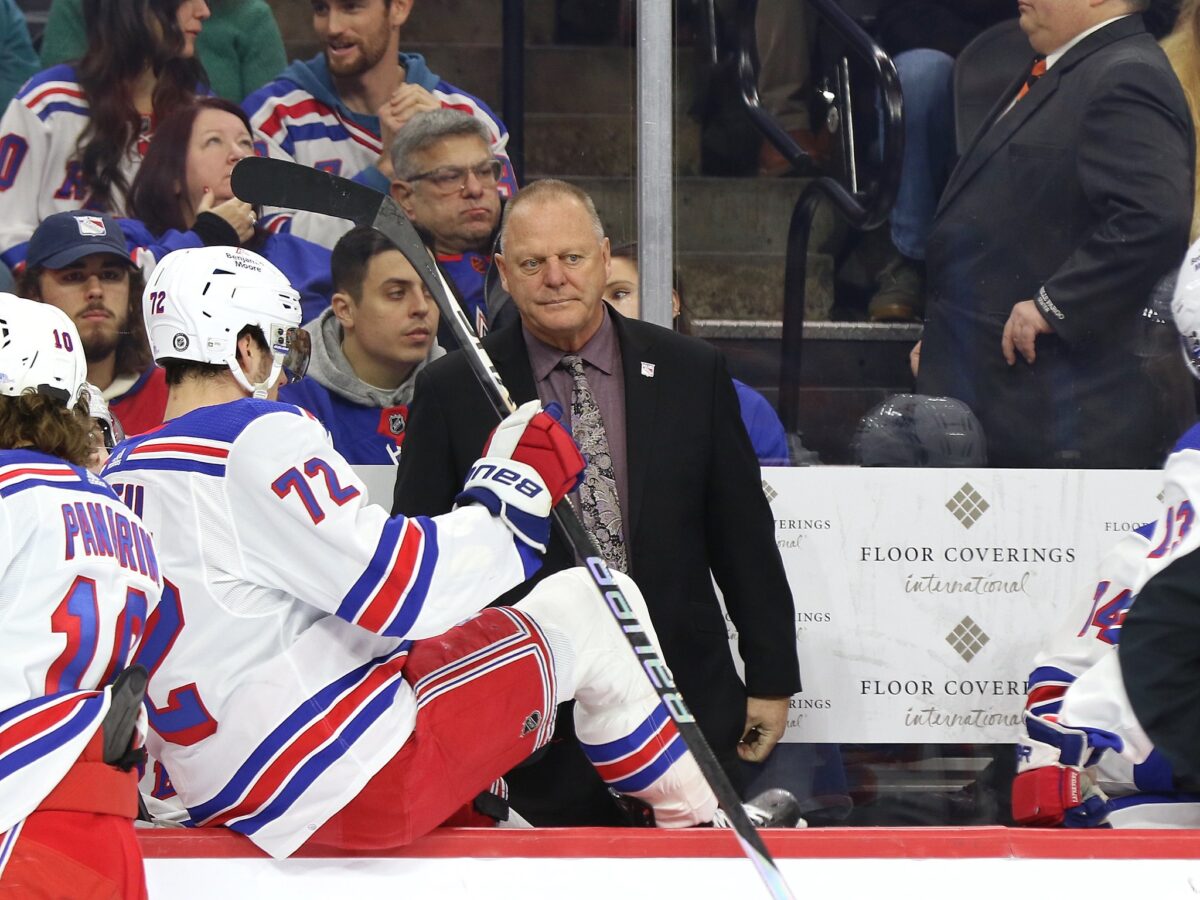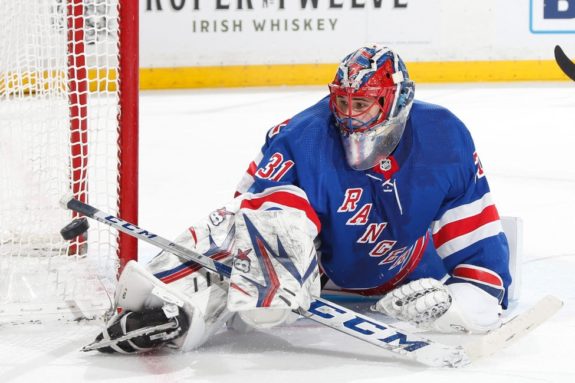The New York Rangers began gearing up for real for another playoff run this week, pulling off a blockbuster trade with the St. Louis Blues for star right wing Vladimir Tarasenko and defenseman Niko Mikkola. While that’s sure to be their biggest move toward what they hope will be a second straight deep postseason run, there are other important, if less high-profile, actions the Blueshirts will need to undertake in order to be at their best when the playoffs start in April.
One of those involves the team’s goaltending, which coach Gerard Gallant must properly manage down the stretch with an eye on star netminder Igor Shesterkin being fresh for the tournament. With a tightly-packed schedule over the Rangers’ remaining 31 games, such an endeavor ranks near the top of the Rangers’ to-do list.

Starting with their Feb. 10 and 11 contests against the Seattle Kraken (home) and Carolina Hurricanes (away), the Blueshirts have seven remaining sets of back-to-backs – six of them between now and March 19. With the club occupying the third postseason berth in the Metropolitan Division, it can hardly breathe easy at this point – yet the Rangers will need to find the crucial balance between relying on Shesterkin, the reigning Vezina Trophy winner, to help lead them into the playoffs and not burning him out in the process.
Actually, it seems pretty obvious that Gallant has been in the midst of doing that already. The coach has been able to lessen his No. 1 goalie’s burden because what looked like a major depth problem in net early in the season appears to have become a strength. And it’s why the coach should continue what’s recently become an essentially equal goalie tandem between Shesterkin and streaking backup Jaroslav Halak for the rest of the regular season.
Halak Rolling Since Rough Start to Rangers Tenure
Halak won his sixth straight start Feb. 6, making 32 saves to defeat the Calgary Flames 5-4 in overtime and improving his record to 7-6-1. While not as lights-out as he had been in his previous three outings, during which he allowed one goal each time, the 37-year-old authored a handful of tough, critical stops that allowed the Rangers to survive a back-and-forth, more open game that resulted in plenty of offense for both sides.
Since starting the season 0-5-1 and looking shaky through those six outings, making some Rangers fans wish the team had given Alexandar Georgiev an unwieldly qualifying offer, Halak has found his form. He’s delivered the steady, and at times outstanding, veteran goaltending the Rangers envisioned getting when they signed him to a one-year, $1.5 million contract in the offseason. He’s evoking confidence from Gallant and more importantly, the team in front of him, taking the pressure off Shesterkin that seemed to grow by the day as Halak struggled over the first two months of 2022-23.

With that pressure having eased, attention must turn to keeping it at as low a level as possible. It follows that Shesterkin, whose 53 games last season represented the highest total of his three-plus season career as he put up eye-popping numbers, would do well to keep to a similar workload for 2022-23. Last season, the now-departed Georgiev made 28 starts, going 15-10-2 with a 2.92 goals-against average.
“Every time you join a new team, maybe you’re trying too much, and then somehow you’re squeezing the stick a little more and then I guess that’s when my record wasn’t the best,” Halak said after making 33 saves to beat the Vegas Golden Knights 4-1 on Jan. 27. “Maybe I just tell myself don’t worry about those games and turn the page and just keep moving forward. That’s kind of what I wanted, just to get that first win, and then keep it rolling.”
Despite his early struggles, Halak’s GAA is 2.66 and his save percentage .905 – not far off Shesterkin’s 2.47 and .917 marks. Shesterkin has played 37 games this season, Halak 14. Should the Rangers give Shesterkin say, 16 of the remaining starts with the other 15 going to Halak, that would put Shesterkin at the same 53 games as last season.
After Halak beat the Flames in the Blueshirts’ first game coming out of the All-Star break, Shesterkin – who earned his second straight All-Star nod this season – defeated the Vancouver Canucks 4-3 with a workmanlike 22-save effort Feb. 8. That was his first start since Jan. 25, as Halak’s win over Vegas two days later was the club’s final game before the break.

Both goalies have contributed to the Rangers’ 4-0-1 run, and Gallant’s comfort level with Halak consequently remains on display, with Shesterkin set to start against the Kraken and Halak getting the call in Raleigh against the Metro-leading Hurricanes, winners of seven straight and nine of 10.
Even Split of Remaining Games Between Shesterkin, Halak is Rangers’ Best Approach
At the risk of stating the obvious, there’s no goalie controversy here. Shesterkin is the No. 1 and will remain so no matter how well Halak plays – barring a catastrophic drop in Shesterkin’s performance, of course. The Rangers evenly dividing up the remaining minutes in net, however, would be more than just a mindless ode to a modern NHL in which most teams seek to limit goaltenders’ minutes. It’s a sound plan that worked to perfection last season for the Blueshirts’ young star goaltender who has never handled a large burden of games in his professional career.
Related: Rangers Acquire Tarasenko, Mikkola from the Blues
Keeping Shesterkin from being overworked, while not paramount, is close to it for the Rangers. Riding him too hard to ensure a playoff berth could prove to be a self-defeating act. If he’s exhausted and subsequently not at his best by the start of the postseason, what’s the point?

With 570 career games and a 292-186-65 record, 2.50 GAA and .915 save percentage, Halak has put together an accomplished resume over 17 NHL seasons. He’s overcome his season-opening stumbles to prove he’s still a more-than-viable option, capable of giving his latest team top-notch work in net even at this advanced stage of his career.
Gallant and the Rangers should continue to take advantage. The prospect of giving Halak near-equal billing with Shesterkin from here on out might not be nearly as exciting a topic for Rangers fans as breathlessly reading about the arrival of Tarasenko. Yet it could prove to be just as important, if not more so, in the long run if the Blueshirts plan on playing deep into another spring.